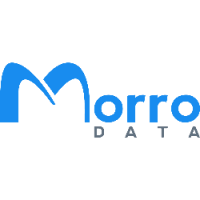Cloud File Storage Trends: What You Need to Know in 2024
Cloud File Storage in 2024: Key Trends and Developments You Need to Know
Cloud storage has come a long way since its inception. What started as a way to store files and documents online has grown into a massive industry, with billions of users and companies relying on the cloud for their data storage needs. But as technology continues to evolve at a rapid pace, what does the future of cloud file storage hold? In this article, we’ll explore some of the trends and predictions that will shape the future of cloud storage.
1. The Continued Growth of Multi-Cloud Storage
Multi-cloud storage has been gaining popularity in recent years, and it’s expected to continue to be a major trend in 2024. A majority of enterprises are currently adopting and planning to adopt multi-cloud architectures as their preferred IT infrastructure. According to studies, over 90% of large organizations have already implemented multi-cloud architectures.
What Is Multicloud?
Multi-cloud storage is a cloud storage strategy that involves using multiple cloud providers to store and manage data. This approach allows businesses to distribute their data across different cloud platforms, rather than relying on a single cloud provider.
Multi Cloud File Storage Use Cases
The primary goal of multi-cloud storage is to improve resilience and redundancy. Multi-cloud storage allows businesses to take advantage of the strengths of different cloud providers. For example, one provider may offer better security features, while another may be better suited for storing large amounts of data. By using multiple providers, businesses can tailor their cloud storage solutions to their specific needs and take advantage of the best features of each provider. Moreover, businesses can avoid data loss or downtime if one provider experiences an outage or other issue. Additionally, multi-cloud storage can improve the performance of data-intensive applications by allowing businesses to select the most appropriate cloud provider for each workload.
There are several reasons why businesses may choose to adopt a multi-cloud storage strategy. These include:
- Avoid vendor lock-in: By using multiple cloud providers, businesses can avoid being tied to a single provider and can switch providers more easily if needed.
- Cost savings: By using multiple cloud providers, businesses can take advantage of competitive pricing and optimize costs based on workload.
- Security: By storing data across multiple cloud providers, businesses can improve their overall security posture and reduce the risk of data breaches.
However, there are also some challenges associated with multi-cloud storage. For example, managing multiple cloud providers can be complex, and businesses need to ensure compatibility and consistency across different cloud environments. Additionally, data transfer costs may need to be considered when moving data between different providers.
By pairing two cloud storage providers, Morro Data’s Multicloud Redundancy feature ensures that your files remain accessible and synchronized across multiple sites, even if one provider experiences downtime. You can customize the access priority of each provider with our Multicloud policy, optimizing operational efficiencies and enhancing your enterprise’s data management capabilities.
2. Greater adoption of hybrid cloud solutions
Hybrid cloud solutions are becoming increasingly popular. This is due to the flexibility and control they offer, as well as their ability to address concerns around data privacy and security. In the future, we can expect more businesses to adopt hybrid cloud solutions, as they look to balance the benefits of cloud services with the need for greater control over their data.
The Benefits of Hybrid Cloud Solutions
- Scalability: With a hybrid cloud solution, businesses can easily scale their IT resources up or down depending on their changing needs. This is because they can seamlessly access the cloud environment as needed.
- Cost Savings: Hybrid cloud solutions can help businesses save on infrastructure and operational costs. By using cloud storage, businesses can avoid the need to invest in expensive hardware and multiple sync and file management software.
- Disaster Recovery and Business Continuity: A hybrid cloud solution can help businesses quickly recover from disasters or outages by replicating data and applications in cloud environments. This ensures business continuity even in the event of a major outage or disaster.
3. More emphasis on data security and privacy
Data security and privacy have always been important considerations for cloud storage users, but recent high-profile data breaches have highlighted the need for even greater vigilance. In the future, we can expect cloud storage providers to place even greater emphasis on data security and privacy, as they look to reassure users and comply with increasingly stringent data protection regulations. Security measures implemented in Morro Data CloudNAS:
- Encryption: CloudNAS uses enterprise-class security with AES-256 and SSL to secure data at rest and in transit.
- Access controls: Access controls are implemented to ensure that only authorized users can access the data. User authentication mechanisms, such as username and password, multi-factor authentication, and role-based access controls (BA and GA) are implemented to prevent unauthorized access.
- Backup and disaster recovery: CloudNAS includes backup and disaster recovery features that help to protect against data loss due to hardware failures, cyberattacks, or natural disasters.
- Security monitoring: CloudNAS has advanced security monitoring techniques to detect and respond to potential security threats in real-time.
- Compliance certifications: CloudNAS has compliance certifications such as HIPAA and GDPR to strict security standards.
4. Increased use of artificial intelligence (AI)
Artificial intelligence (AI) has the potential to transform cloud storage, from improving data analytics and search capabilities to enhancing security and reducing costs.
Overall, the future of cloud storage appears to be focused on increased flexibility, efficiency, security, and privacy. Multicloud storage, Hybrid cloud solutions, and AI are likely to play important roles in shaping the future of cloud storage. As businesses continue to rely more on cloud storage for their data storage needs, cloud providers will adapt to these trends and incorporate them into their offerings.
